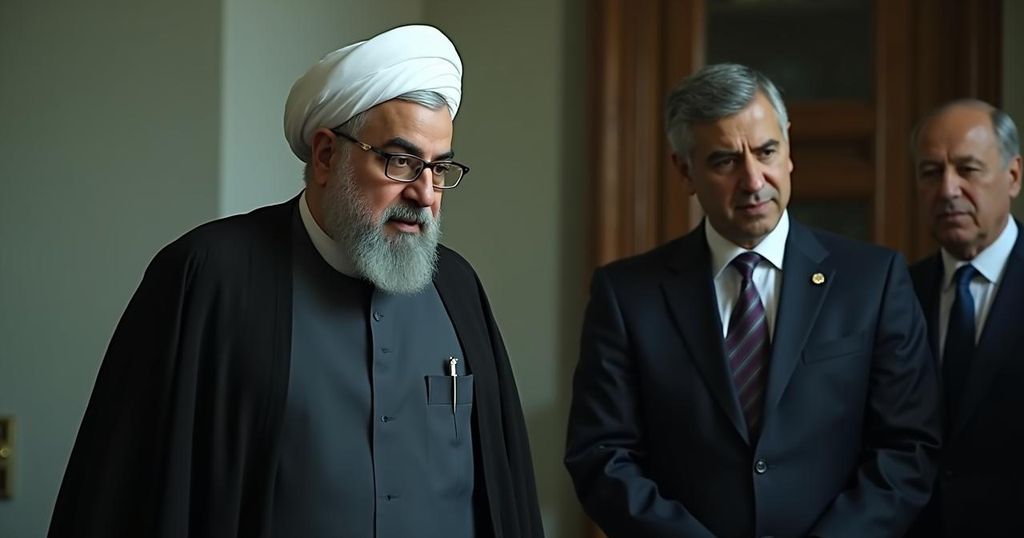Escalating Tensions in the Iran-Israel Conflict: Recent Developments and International Reactions

Recent Israeli airstrikes on Beirut have caused at least 22 fatalities and 117 injuries, targeting Hezbollah’s Wafiq Safa. The strikes further strained relations with UN peacekeepers after attacks on their headquarters. Calls for a cease-fire have intensified amid fears of an escalating regional conflict involving Iran, while Iranian military chief Esmail Qaani faces suspicion of espionage for Israel, highlighting internal tensions within Iran’s leadership.
In a significant escalation of hostilities, Israeli airstrikes on Thursday resulted in the deaths of at least 22 individuals and injuries to 117 in Beirut, targeting an alleged Hezbollah leader, Wafiq Safa, who, according to reports, was not present during the bombings. These strikes caused substantial destruction, including the complete destruction of an eight-story building in the Ras al-Nabaa and Burj Abi Haidar neighborhoods. Amidst this aggression, the Israeli military also attacked the United Nations peacekeeping headquarters in Naqoura, injuring two peacekeepers, further straining Israel’s relations with the UNIFIL. This was particularly concerning as the situation escalated after Israel initiated a ground invasion on October 1, which faced resistance from UN peacekeepers who refused to allow passage into southern Lebanon. The international community has reacted with alarm, prompting calls for a cease-fire from various quarters, including the United States, which has urged Israel to halt its military actions to prevent a broader conflict involving Iran and Lebanon. The United Nations Security Council weighed in, advocating for the bolstering of the Lebanese Armed Forces as a path to stabilization along the Israel-Lebanon border. In addition to the casualties in Lebanon, Israeli airstrikes persisted in Gaza, where multiple bombings on Thursday killed at least 27 individuals, including women and children, as authorities reported damage to shelters housing the displaced. In light of the turmoil, the Iranian military chief, Brigadier Esmail Qaani, has come under scrutiny, suspected of being an Israeli informant following the deaths of key Hezbollah figures. Reports indicate that Qaani is under investigation while confined to house arrest, drawing attention to potential internal security concerns within Iran’s military ranks.
The conflict between Iran and Israel has a long history, marked by geopolitical and military tensions that have escalated dramatically in recent weeks. The recent airstrikes by Israel on Lebanon aim to neutralize threats posed by Hezbollah, an Iranian-backed militant group. The situation is compounded by the involvement of UN peacekeeping forces which have been mandated to maintain peace in the region but have faced hostile actions from Israeli military operations. The humanitarian consequences of the ongoing conflict are severe, with thousands of individuals displaced and casualties increasing on both sides. International calls for a cease-fire have emerged as a critical response to the escalating violence, highlighting the urgent need for diplomatic solutions and stabilization in the region.
The recent escalation in the Israel-Lebanon conflict has resulted in significant casualties and destruction, raising grave humanitarian concerns and drawing international scrutiny and calls for a cease-fire. The potential internal strife within Iran’s military due to allegations against Brigadier Esmail Qaani adds another layer of complexity to the situation. As global powers advocate for strengthening Lebanon’s military capacity and pursuing diplomatic solutions, the pressing question remains how to effectively de-escalate the conflict amidst ongoing attacks and retaliatory actions.
Original Source: www.hindustantimes.com








